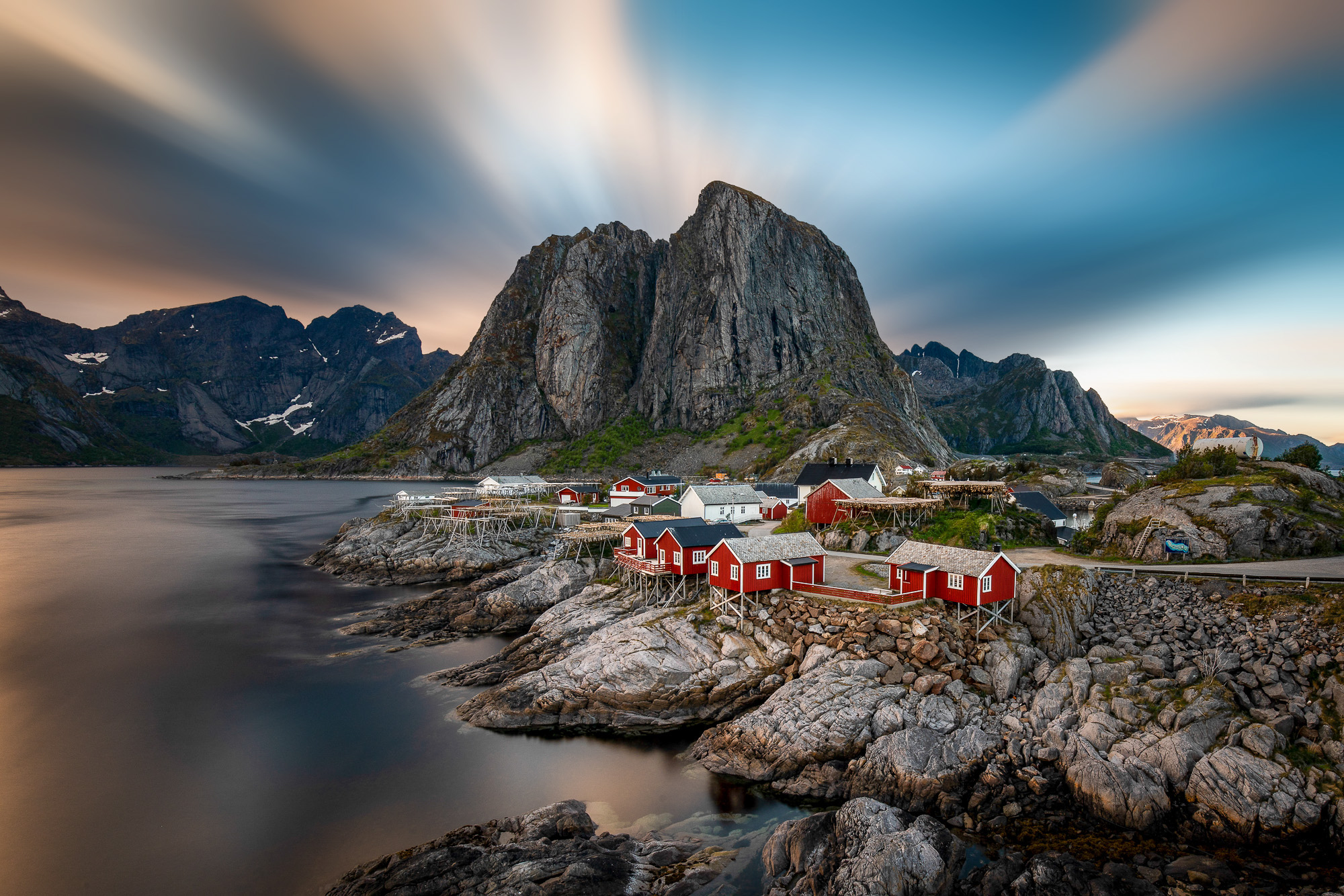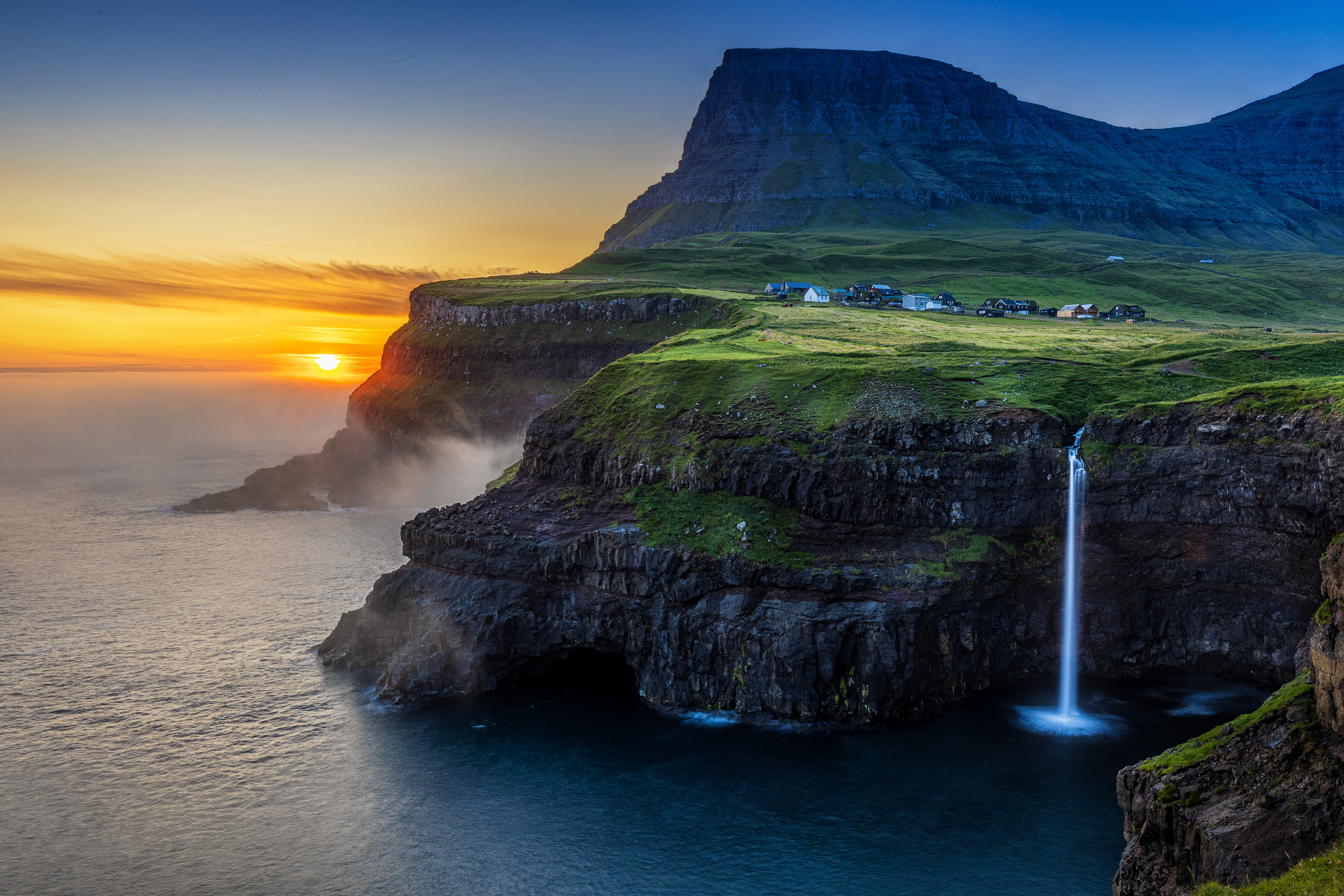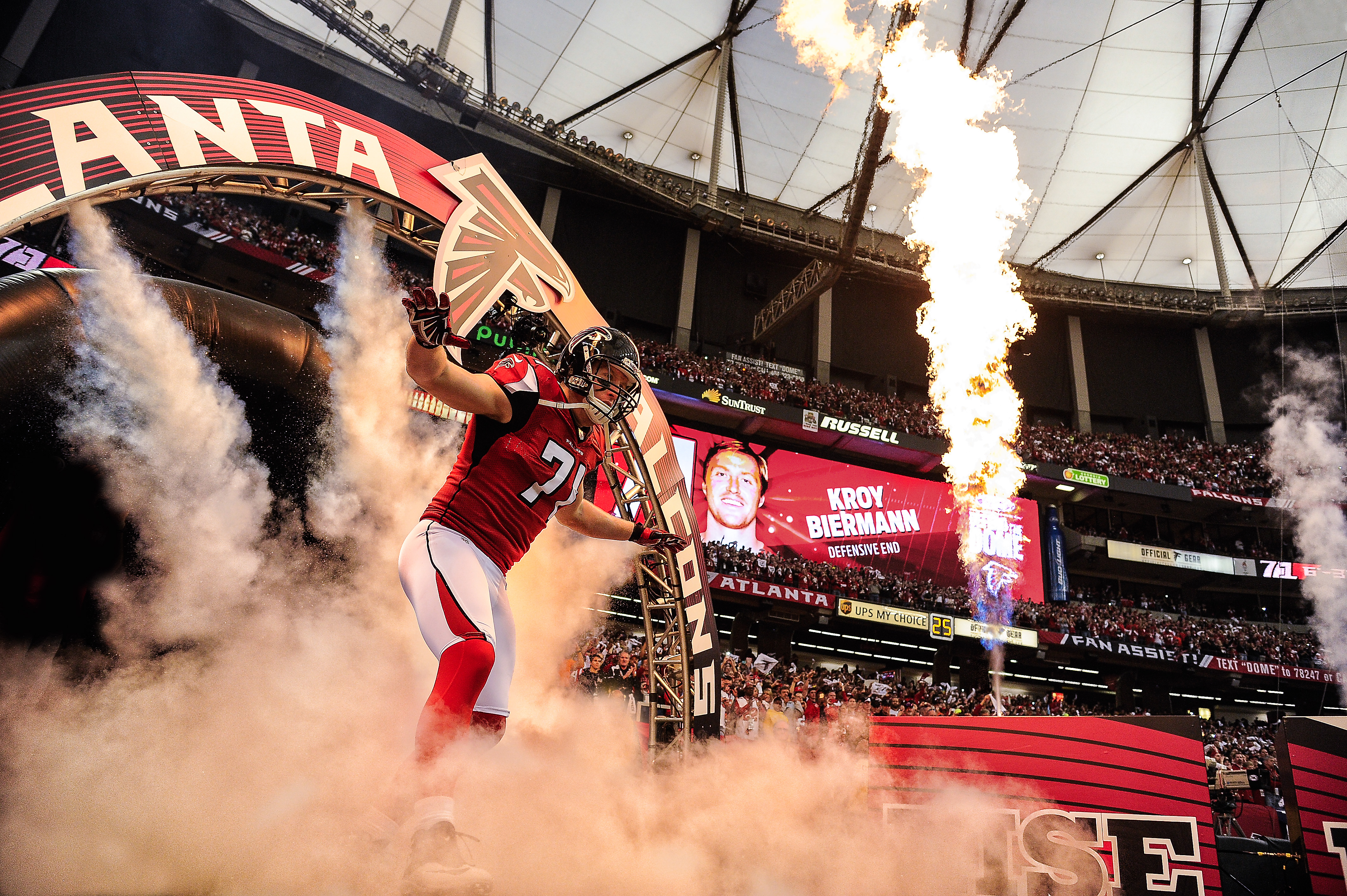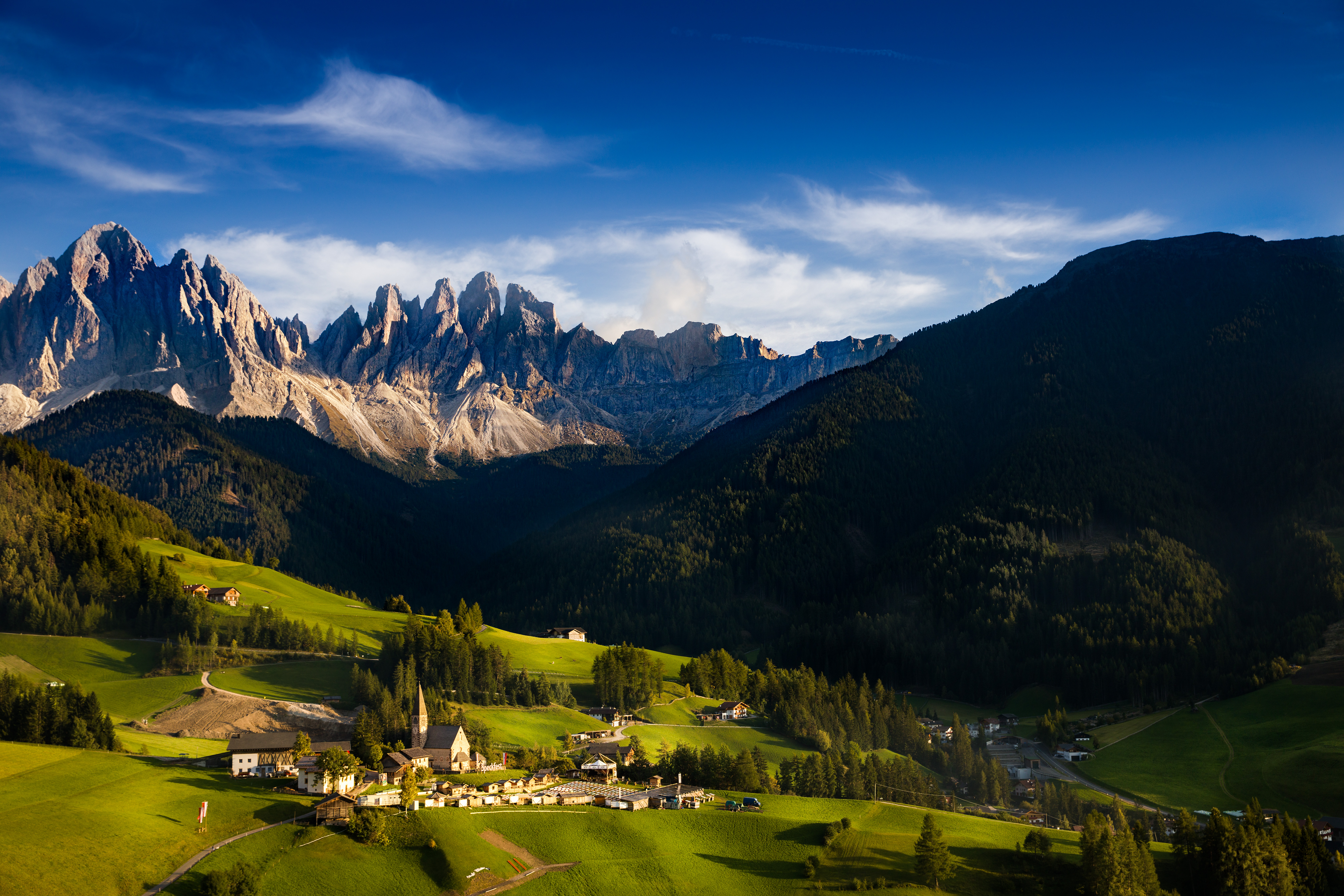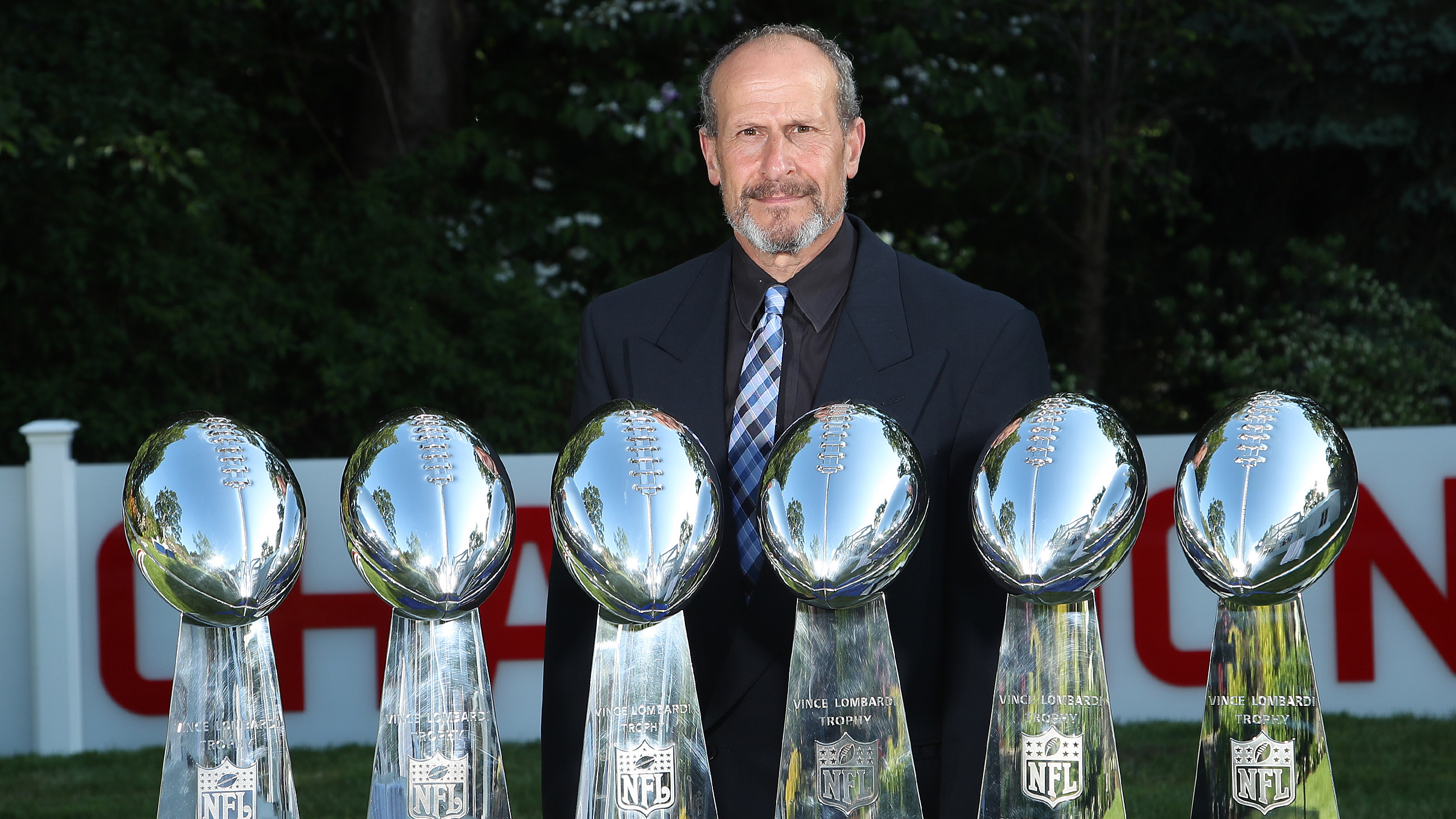"Complaining about AI won’t make it go away. It’s time to embrace and enjoy it or watch it run over you," says Scott Kelby
Scott Kelby chats AI, switching to Canon, a lifelong love of travel, and his talk at The Photography & Video Show next week

The best camera deals, reviews, product advice, and unmissable photography news, direct to your inbox!
You are now subscribed
Your newsletter sign-up was successful
If you had to describe Scott Kelby’s career in one word, it would be prolific. He’s written over 100 books and is best known to many as the CEO of KelbyOne, one of the most comprehensive online training platforms for photography and image processing. And yet the qualities that stand out when speaking to Scott (or reading one of his books) are his warmth, humility, and sense of humor.
To illustrate all of these qualities, Scott will be appearing at The Photography & Video Show in Birmingham, UK next week from March 16-19, with not one but 5 talks and several book signing sessions. But he hasn't always been taking photos, as I recently found out.
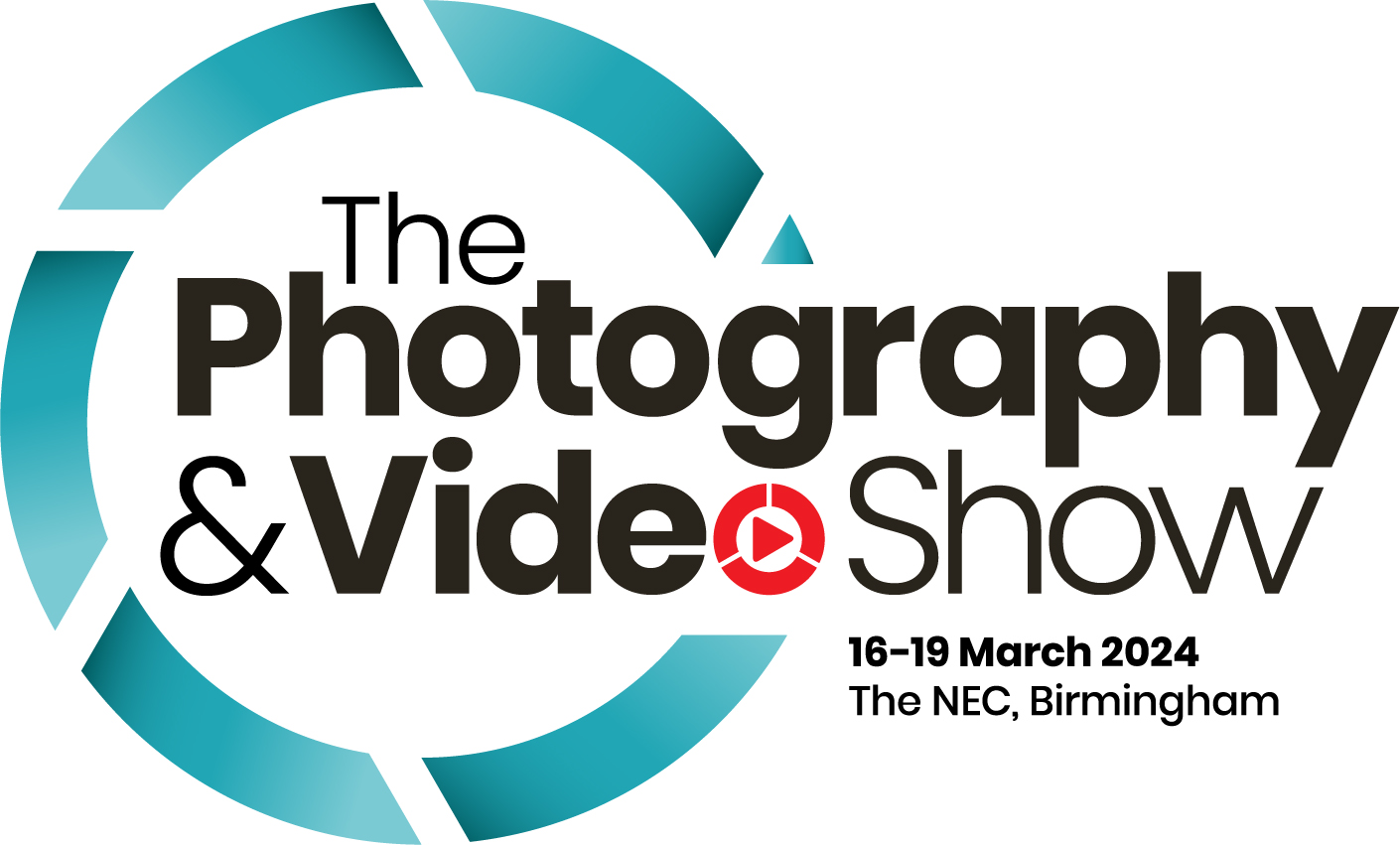
Don’t miss Scott's talks and book signing sessions at The Photography & Video Show, held at the NEC Birmingham between March 16-19, 2024. He'll be there between 16-18, hosting talks such as 'What makes a great travel photo?' and joining a panel of experts discussing 'Will AI be the death of us, or the saviour?' Get your tickets here.
During his twenties, Scott was making a living by playing keyboards full-time in bands and clubs, or as he puts it, “mostly fulfilling the dream of being a starving musician”. After a brief stint in the finance industry, Scott quit to start a graphic design business with his wife. This led to him starting a local newspaper for Macintosh enthusiasts, which over time grew into a national magazine available on bookstands. That got him into writing and eventually a book publishing deal, and helped him launch his first live Photoshop seminar.
“I would sound a lot more intelligent if I said it was all carefully planned”, says Scott, who believes that a lot of his career was luck, a door opening when he least expected it, or one thing leading to another. It’s easy to be carried along by his optimism and energy, and it feels like he’s been making much of his luck all along. Here, we find out what he makes of AI photo editing, what the success of having the world’s best-selling photography book means, and what to expect from his talk for Canon at The Photography & Video Show 2024.
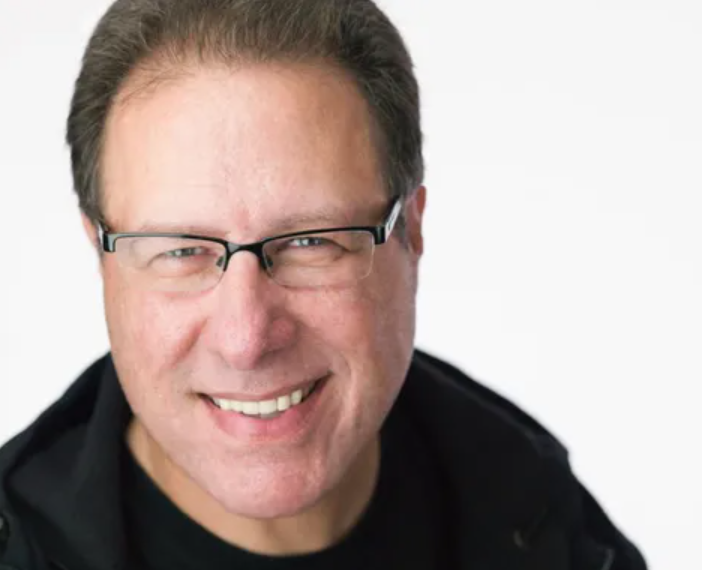
Scott Kelby is a photographer, designer, podcast host, and the award-winning author of more than 100 books, including The Digital Photography Book series and The iPhone Photography Book. He lives in the US in the Tampa Bay Area of Florida with his wife, daughter, and three “awesome doggos”.
Scott was also the president and founder of the National Association of Photoshop Professionals (NAPP), which merged with Kelbytraining.com in 2008 to become KelbyOne, a huge online training platform for Adobe Photoshop, Photography, and Lightroom. He's currently working on a new book called Crush The Composition that looks at photographic composition outside of the typical rules.
Scott, you’ve had a hugely varied career. What got you into photography?
I’d never really thought much about photography growing up, but one day, my older brother came home with some 8x10 glossy prints from a trip he took to Europe, and I was just blown away. I couldn’t believe someone I knew could take photos like that, and it intrigued me. My brother saw my enthusiasm for it, and when he bought a new camera, he gave me his old one (a Minolta SRT 101 film camera). I was off and running.
It wasn’t long before a friend and I opened a small portrait studio, and I was shooting day and night non-stop. Shooting so much that I burned out on photography. I literally just stopped. I closed the studio, packed up my gear, and stored it all up in the attic, and I didn’t touch it for about 10 or 12 years. I was done with photography… until the day I held my first DSLR (a Nikon D1, back in 1999 or 2000). Seeing that image appear instantly on the back of the camera reignited my passion for photography, and I’ve been shooting, and loving it, ever since.
Was there a “big break” moment for you?
I think it was when I wrote my book, The Digital Photography Book (I know, kind of an obvious name), as that book took off and sold millions of copies. It’s translated into dozens of different languages. It’s the number one bestselling book on digital photography in history, and it set off my career as an author, speaker, and instructor. That was a real turning point for me.
How does that make you feel, being one of the top-selling authors in the field?
Weird. This is something I’m sure a therapist or psychologist would have a field day with, but I work hard to write great books that I feel will help people – that will get results and make a significant difference in their enjoyment of photography. That leads to books that sell, sure, but then we receive awards or accolades, and I almost feel like it’s happening to someone else.
I’m very shy about it, and my publisher has to push me even to share the news because I don’t like to toot my own horn. I guess I just want to focus on the education and not the accolades or high sales numbers.
Does “success” come with a certain level of pressure to follow up with more content?
Oh my gosh, does it ever! It’s like a band releasing a hit album. How do you follow it up? There’s a lot of pressure to make the next one bigger and better, but I just try to keep my head down, do the right thing for the reader, and not get distracted by that pressure. It’s not easy to do because a lot of people are counting on you. Following up a smash bestseller is not for the faint at heart.
As a photographer, you’ve shot many different genres. Do you follow your interests?
Although I shoot many different genres (because I teach them), my passion lies in travel photography, portraiture, and sports photography. Take travel photography, for example. I love to travel – love it! So, take something I love (photography) and join it with my love of travel, making the whole experience much more fun. Add my love of people and toss in the occasional stop at a local burger joint, and it makes you want to grab a camera and run to the airport.
You must have seen a lot of change in the photography industry since you started. Do you think it’s a different landscape now (no pun intended)?
I do, and I think AI is already starting to turn our world a little upside down in that regard. We see it a lot in our post-processing in Photoshop and Lightroom and a little in our cameras themselves (features like eye autofocus), but things seem to be moving rapidly. Things that used to be so tedious in post-production have gotten almost ridiculously easy.
That has lowered the bar to entry for professional-level editing, and I know that has upset some folks who learned how to do all this stuff “the hard way”. I get it, but it’s here, and complaining about it won’t make it go away. It’s time to embrace and enjoy it or watch it run over you. I saw this happen back in the transition from film to digital. It freaked many people out, but most eventually embraced it.
You’re no stranger to public speaking or giving photo talks. Have you always enjoyed that?
There is nothing like the energy you get from speaking to a live audience. It is just about the most fun thing I get to do. You know you have people in your life who, if they go to a great new restaurant, can’t wait to tell all their friends so they can try it out? That’s me.
If I learn something new, I can’t wait to share it, and when you’re on stage sharing these things, and you see the lightbulb go off in your audience’s head, and they are right there with you – it’s exhilarating. As an educator, it’s so much fun connecting with your audience and the energy and ideas that go back and forth.
You’re returning to The Photography & Video Show in the UK this coming week. Do you enjoy the show?
This is my second time speaking at The Photography Show; my first experience was absolutely wonderful. I loved it! It is one of the best events of its kind anywhere – the crowds’ enthusiasm is infectious (probably not the best word to use these days), there are so many vendors and so much to see, and there’s learning around every cover. I’m just a big fan, and I can’t wait to get back this year, where I’m speaking about travel, Photoshop, Lightroom, and all sorts of fun stuff. I have a lot of new stuff to share, so I am super psyched.
You haven’t always shot with Canon kit. Why the switch?
I had been a Nikon user for many years – not because I did the research and carefully picked the right platform for me. It was because my brother gave me one of his hand-me-down Nikon cameras, so I was a Nikon guy from the start. But the first time I shot a pro football game with a Canon rig, that was it for me – I fell in love. Before long, I had switched entirely over to Canon.
I think your choice of camera is a very personal thing. This is the tool you use to make your art, and it has to connect with you. It has to feel right in your hands, and the menus have to make sense to you. You want to feel like you are working together to achieve a common goal – to create something beautiful, interesting, or fun, so it has to be a fit.
Nikon makes great cameras. Still, Canon speaks to me on an artistic level and a technical one as well. For example, I love the way Canon renders skin tone, and I don’t think any other camera matches it. Canon glass is also unbeatable.
What Canon gear would we find in your bag now?
My go-to body is my Canon EOS R6 Mark II, which does everything I want and more. I primarily use one lens for travel – the RF 24-240mm – but I also have the RF 14-35mm f/4 in case I shoot a classic interior shot. My go-to lenses for portraits are my EF 70-200mm f/2.8 and my RF 85mm f/1.2L. For sports, it’s my Canon EOS-1DX and my EF 400mm f/2.8 III.
Many know you as the president and CEO of KelbyOne. Were you an early adopter of Adobe editing software?
I started using Photoshop in my day job as a graphic designer before photographers embraced it for their work. I started back on Photoshop 2.0, so I was black-and-white scanning, color conversions, and pre-press type stuff for years before it hit with photographers. When we did our first full-day Photoshop seminar back in 1993, there was nothing out there like it, and that propelled everything.
By 1999 we formed The National Association of Photoshop Professionals (NAPP). Then, a few years later, we started an online training platform called Kelby Training. When Adobe launched its subscription model, a lot of people were upset. People started dropping their memberships, telling us they wouldn’t be “renting” their software, so they would no longer be using Photoshop, and thus, they would no longer need us to teach them. Ouch!

We spoke earlier about having a varied career. Is it challenging to find time to fit in everything you want to do?
Sometimes, but the nice thing about running your own company is that you have a team behind you, so you can fairly often step away to do other things, like travel or shoot a game or an airshow, and everything doesn’t fall apart. I’ve got an amazing team at KelbyOne, with lots of support, and that frees me to have time to be creative and spend time with my family and friends.
And if you could only carry on with one thing for the rest of your career?
It would be travel photography. I so love to travel, and I go light with my gear and still get the type of shots I want to. I can photograph people through my travel images, and I get to see incredible places, meet neat people, eat great food, and learn about different cultures. Plus, my family loves to travel with me, so we go on a lot of holidays together and that is the most fun for me.
You lead many training sessions with photographers and editors of all levels. What is your advice to hobbyists who want to turn professional?
If you want to go pro, you need to develop your signature look – one that’s repeatable for you again and again. The more unique it is to you, the more you’ll work. Today’s cameras are so good – heck, even our phones can take great photos – so if everybody today can take a pretty decent photo, why would anybody pay to hire you?
They will hire you if you have a unique look they can’t easily achieve on their own or from their “friend with a nice camera”. Chances are a lot of this “look” will come from what you do in post-processing, but it might also have to do with how you compose or see a scene. realistically, it’s probably mostly coming from your post-processing.
You’ll know you have a style or a look when friends or other photographers look at one of your images and say something like, “I knew that was one of yours.” That’s when you know you’re developing your signature look – when other people start to recognize your images as one of yours immediately.
I could pick a Joe McNally portrait from a stack of prints in two seconds. That’s what I’m talking about. The same goes for a Peter Hurley headshot. I can tell you if it’s one of Peter’s (or one of his students or protégés). That’s the first step – getting your look. Then, I would recommend putting the rest of your energy into getting good at marketing yourself or getting signed on with an agent to do it for you.
What’s next for you and your work?
I feel like my best images are still inside me. I’m pretty consistently frustrated with my work because I know I can do better, and what’s next for me this year is setting aside some time to work on personal projects and shooting for my portfolio. I spent so much time creating images during an online course recording or during a live on-stage demo that I don’t often take the time to plan and set up a shoot just for me, so this year, I’m going to focus more on that.
Lastly, is there anything we should ask you that we haven’t already?
Well, you didn’t ask me what special thing I did the last time I was in Birmingham for The Photography Show! We took my son and daughter to the castle near Stratford Upon Avon, where I proposed to my wife (their mother) 35 years ago. I took them to the spot where I got down on one knee and offered her an engagement ring (I’m glad she said yes, or it would have been quite awkward).
The kids got a kick out of seeing that spot and hearing the story all over again, but looking at the very castle and the lane and seeing the places they had only heard of in stories of how I asked the girl of my dreams to marry me so very long ago.
You can meet and greet Scott Kelby at The Photography Show & Video Show between 16-18 March, 2024. Find out more about his talks here.
The best camera deals, reviews, product advice, and unmissable photography news, direct to your inbox!
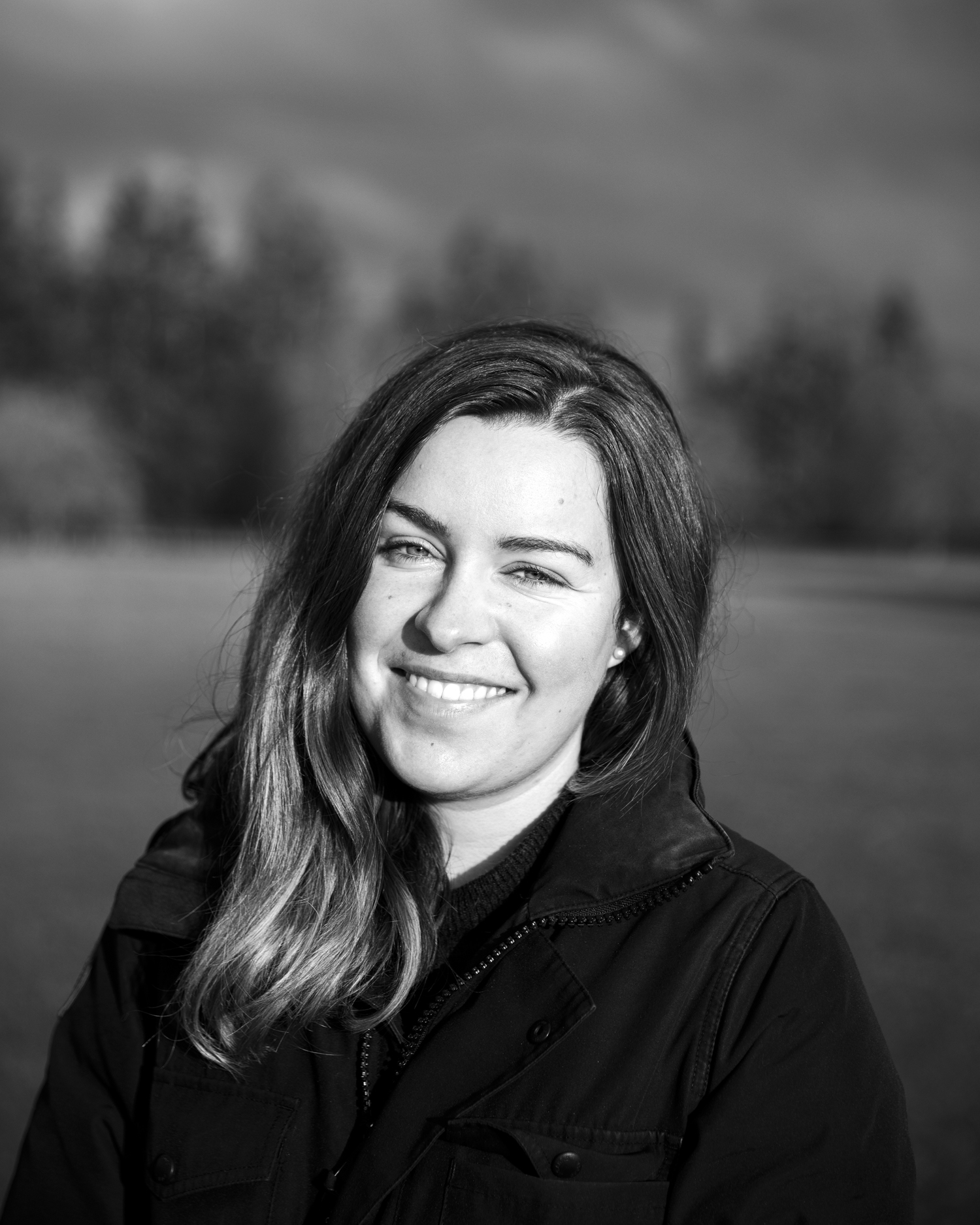
Lauren is a writer, reviewer, and photographer with ten years of experience in the camera industry. She's the former Managing Editor of Digital Camera World, and previously served as Editor of Digital Photographer magazine, Technique editor for PhotoPlus: The Canon Magazine, and Deputy Editor of our sister publication, Digital Camera Magazine. An experienced journalist and freelance photographer, Lauren also has bylines at Tech Radar, Space.com, Canon Europe, PCGamesN, T3, Stuff, and British Airways' in-flight magazine. When she's not testing gear for DCW, she's probably in the kitchen testing yet another new curry recipe or walking in the Cotswolds with her Flat-coated Retriever.
